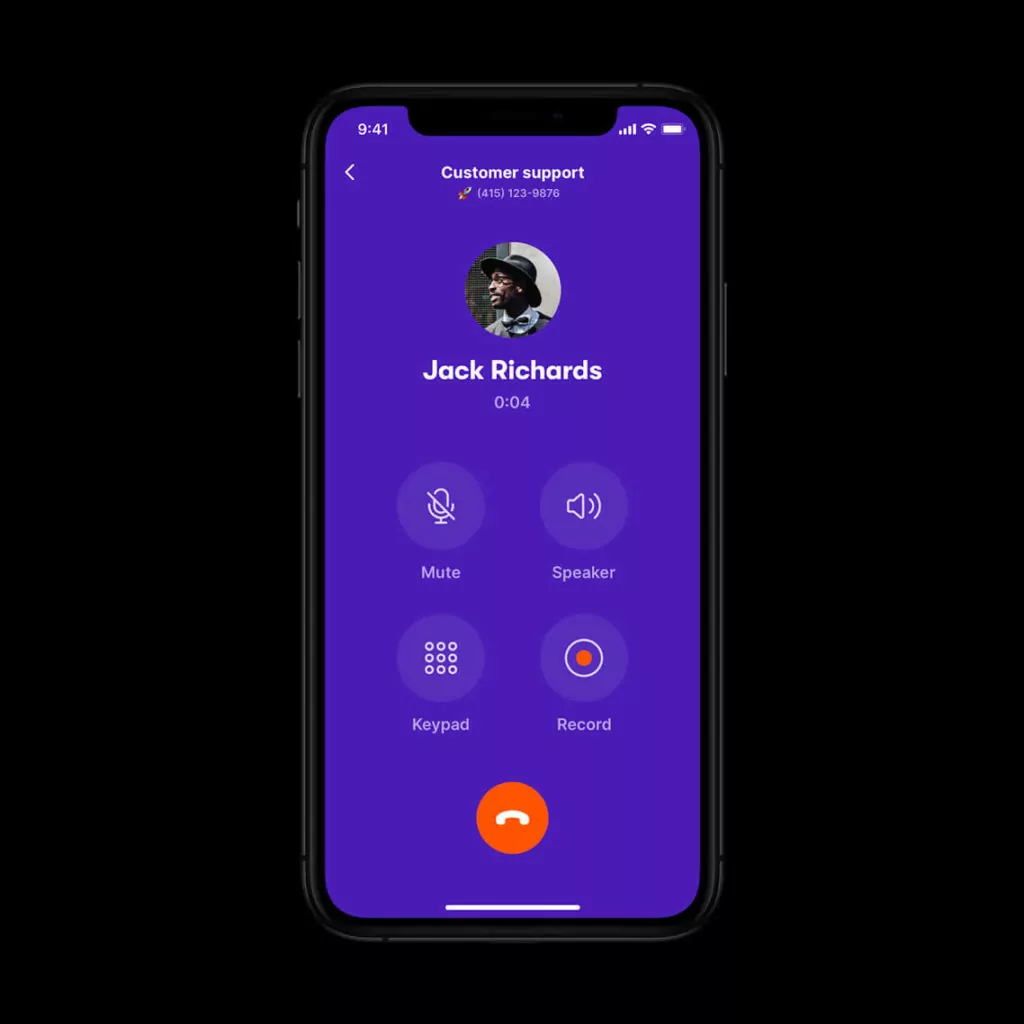Many modern organizations have said goodbye to antiquated landlines and private branch exchanges (PBX) to conduct business. Instead, they’ve incorporated phone services that use Voice over Internet Protocol (VoIP), the technology that enables anyone to make phone calls over an internet connection.
Companies that make the switch — or have used a VoIP provider from the get-go — enjoy fantastic call quality, lower telecommunications costs than traditional telephony, and enhanced calling features.
Once you’ve decided to use a VoIP system,
you still have another decision to make. Do you want fixed or non-fixed VoIP numbers? Each option comes with its own set of pros and cons, and the one you choose will depend on the needs of your business.
In order to figure out which is right for your business, you’ll need to understand how fixed vs non-fixed VoIP phone numbers differ as well as the benefits and drawbacks of each. We’ll help you sort it all out so you can make a decision.
What is a Fixed VoIP Phone Number?
A fixed VoIP phone number is associated with the account holder’s physical location, such as a home address or a company headquarters. In effect, the number is attached to that physical address.
If you work in an office, the fixed VoIP phone number is traceable to that location and will likely have a local phone number that reflects the office’s area code.
What is a Non-Fixed VoIP Phone Number?
A non-fixed VoIP number isn’t tied to a geographical location; they’re typically just associated with an email address. Like fixed VoIP numbers, non-fixed VoIP numbers can be personal or business numbers.
If your team works remotely (or a hybrid mix of in-office and remote), this lets your entire company work from wherever they wish. Plus, you have the option to have phone numbers for business purposes outside of your local area code by using non-fixed VoIP numbers.
Again, both types of VoIP phone numbers require high-speed internet service to make and receive calls. The major difference between the two is straightforward.
Now let’s dig a little deeper and consider how each type would impact your business.
Pros and Cons of Fixed VoIP Phone Numbers
If you choose a fixed VoIP service, you’ll be assigned a local number based on your business address. A fixed number has its benefits and drawbacks.
Pros of Fixed VoIP
- An authentic business number — identifiable by caller ID — projects credibility.
- Advanced calling and routing features serve customers and employees.
- Access to emergency services ensures safety; 911 calls can trace to a home or business address.
Cons of Fixed VoIP
- Long-distance calls are expensive when calls originate from a local area code.
- You cannot establish a local presence if your business expands outside your region or country, as all your phone numbers will be tied to your headquarters’ location.
- Fixed VoIP systems are more expensive and time-consuming to set up.
Pros and Cons of Non-Fixed VoIP Phone Numbers
If you choose a non-fixed VoIP number provider, you’ll be able to select a virtual phone number from the area code of your choice. And, you can purchase more than one if you’d like to establish a local presence in every place you do business.
Of course, you should consider there are pros and cons of choosing a non-fixed number too.
Pros of Non-Fixed VoIP
- A local presence is easily established in other regions and countries since you’re not required to have a physical address in a geographic location.
- International calling from a non-fixed VoIP service can be far less expensive than traditional carriers.
- Low-cost price plans are designed to grow with small businesses.
- Non-fixed VoIP systems are simple to set up — with little to no training required.
Cons of Non-Fixed VoIP
- Virtual numbers aren’t tied to a business address, so they aren’t identifiable by caller ID. This may cause some customers to confuse your phone calls with spammers or fraudsters. (Luckily, OpenPhone customers in the US don’t have to worry — there’s a solution! Hint: You can set up your own outgoing caller ID for your OpenPhone number.)
- Emergency services can be compromised when there’s no way to trace 911 calls.
Why You Should Choose a Non-Fixed VoIP System for Your Business
Choosing a system with fixed VoIP lines makes sense for some organizations. It may satisfy the requirements of an established business that operates from a single location — so long as it doesn’t employ remote workers or engage in frequent travel outside of the region or country.
Of course, that’s not the standard way of doing business today. Modern businesses often have multiple locations, employ flexible or remote teams, and serve customers beyond their backyard. For them, non-fixed VoIP systems are a better choice. Any perceived drawbacks are easily mitigated.
First, VoIP providers have taken measures to address the problems with virtual phone numbers. They’ve delegitimized concerns that businesses would be confused with spammers and scammers by creating APIs to help identify fraudulent activity. Through data analytics, they’ve created reputation scores for unknown phone numbers to help determine which are suspect — it’s how you get those “spam likely” warnings on your cellphone.
An organization can boost its own credibility too by registering its business phone number with Yelp, Google My Business, Bing Places, and Yahoo Localworks.
Now, being unable to trace emergency calls to a location is a legitimate safety concern. However, just as a company trains its employees on other emergency procedures, it can certainly train employees to use their personal cellphone numbers if calling 911.
OpenPhone: The No-Brainer, Non-Fixed VoIP Phone System

There are many VoIP service providers that will set you up with a virtual phone number — no problem.
However, not all of these systems provide the features, functionality, and support for growing, modern businesses.
OpenPhone is an easy-to-use non-fixed VoIP phone system with a cartload of features specifically made for businesses. Here are a few of them:
- Toll-free numbers: They make you look even more legit.
- Support for local numbers: Have we mentioned this yet? Create a local presence for your business that your customers will recognize and trust.
- Really affordable international calls: Your customers are all over the place, but that doesn’t mean you need to spend an arm and a leg servicing them. Unlimited calling to the US and Canada is free with OpenPhone.
- Shared virtual phone numbers: It’s important for flexible workforces to be able to work in collaboration with one another.
- Voicemail transcription: When you’re busy, you need to multitask — like by reading voicemail messages during meetings.
- Call recording: Sometimes it’s just easier to record a call than take notes, and sometimes you need to CYK (cover your keister).
- Snippets and auto-replies: They boost productivity and ensure text messaging is consistent across the team.
- Auto-attendant: When a live human being can’t answer every call, a friendly virtual assistant who performs 24/7 call routing is the next best thing.
- Business hours: If you don’t establish boundaries, you’ll be picking up calls to your business phone number when you’re trying to unwind from your day. 🛌
- Reporting and analytics: You can get a good, clear picture of what’s going on behind the scenes.
- Multiple device support: You have a lot of devices, and you need the flexibility to use the one that’s within reach.
- Gorgeous, intuitive user interface: The tools you use to get your work done should be engaging and delightful!
- Integrations with CRM and workflow tools: Communication is important, especially between your apps. OpenPhone will integrate with your processes and workflows on Slack, HubSpot, and Zapier.
Check out some of these additional features in action in the video below.
C’mon and Take a Free Ride
While both fixed and non-fixed VoIP have pros and cons, if your business needs more flexibility, a non-fixed VoIP is probably right for you. It will allow you to establish a local presence in all the regions you do business and will work especially well for your remote workers. Now that you understand the differences between fixed vs non-fixed VoIP, and you know which option is right for your business, next comes the fun part: evaluating your options.
OpenPhone’s non-fixed VoIP phone system can help you establish credibility no matter where you do business. And, it will make communicating inside and outside your company downright delightful. OpenPhone is the No. 1 business phone app trusted by thousands of professionals and business owners. Each user comes with a non-fixed VoIP phone number and plans start at just $15 per month.
Set up a free trial to see what you’re missing. We know you’ll enjoy the ride.
